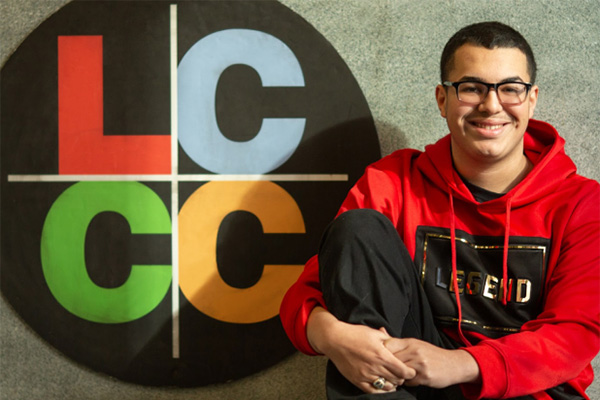Simulation labs help train students in clinical decision-making and critical thinking

Most people would agree that the best way to learn is by doing – by working on and applying the material that is presented during class.
With that in mind, the nursing department at Lehigh Carbon Community College recently welcomed the opportunity for realistic, hands-on learning in the form of high-fidelity clinical simulation labs.
The lifelike simulators – there is one lab at the main campus in Schnecksville and one at the Tamaqua campus – each house one adult mannequin and one child mannequin that represents a 6-year-old.
The simulators come to life as learning tools unlike any book, video or lecture that students commonly encounter in the classroom. In tandem with the labs that mimic a medical facility room, the simulators teach future nurses how to save lives by duplicating scenarios that occur in hospitals and emergency rooms daily. The simulators also elicit reactions in real-time, so students can think on their feet by applying the practical skills that they’ve studied.
“Students today in the 21st century want this type of learning,” says Dr. Mary Brinker, assistant professor of nursing at LCCC. “It builds their clinical reasoning skills, and they need to apply these skills in real-life situations.&rdquo
In the simulator lab, nursing students must analyze complex care in a clinical situation. The simulators are programmed to present symptoms as a patient care scenario unfolds. A voice coupled with physiological clinical clues from a simulator give information to the student, who analyzes the information to determine what interventions are most appropriate for the condition presented. As they provide care, the students must read monitors and assess how the patient reacts, resulting in a lived experience of clinical decision-making and critical thinking.
Funding for the project came to LCCC through a grant from the John E. Morgan Foundation and the federal Carl D. Perkins Career and Technical Education grant. The labs were unveiled at special open house ribbon-cutting ceremonies at the main campus in March and at the Tamaqua site in April. The grants were made possible through the dedicated efforts of Brinker and Barbara H. Lupole, Director of Nursing Programs, who was instrumental in bringing Brinker into the program and coordinating plans to bring the nursing department’s mission of high-tech learning to fruition.
When Brinker began teaching full-time at LCCC, she had already established a successful “sim” lab project at DeSales University in Center Valley. Brinker said that her knowledge and passion for clinical education in this unique setting was so great that she wanted to be part of a similar effort at LCCC. She had studied what simulators can do to benefit learning outcomes for much of her career, and she presented data to support what she knew about producing a quality nursing program.
Brinker had noted how students would often get frustrated when something went wrong in a practical lesson. One value of the sim labs is that they teach through allowing mistakes, so that students learn and recall how to do things correctly the next time a situation occurs, as well as once they are in an acute care setting.
Students get a boost of pride and self-esteem when they apply clinical reasoning skills correctly, and they have provided positive feedback on the sim labs.
“Nursing has changed rapidly over the past decade and the use of technology has increased as well. Patients are very complex,” Brinker says. “Nurses must take action at the bedside to prevent or stop patient decline during an acute clinical situation for safe patient management. They are relied upon by the entire professional health care team to be able to build clinical reasoning by looking at all of the clinical information, then apply evidence-based practices to make sound judgement calls during a patient crisis.”
Lupole emphasized that the sim labs were a team effort that included the senior administration of LCCC, physical plant and facilities, the IT department and the nursing faculty. All the efforts were directed toward providing an outstanding clinical education experience for students in both nursing programs.
For more information on LCCC’s nursing programs visit the Nursing (ADN) program page.

